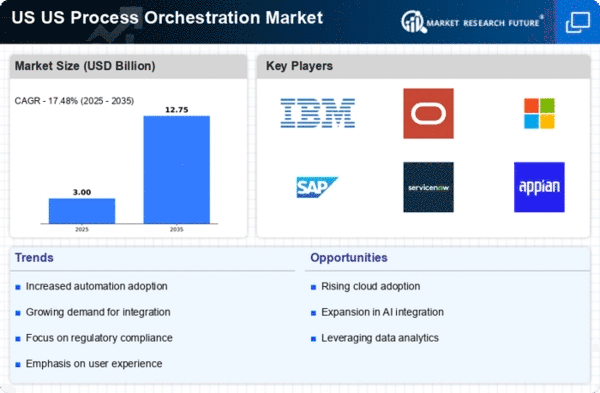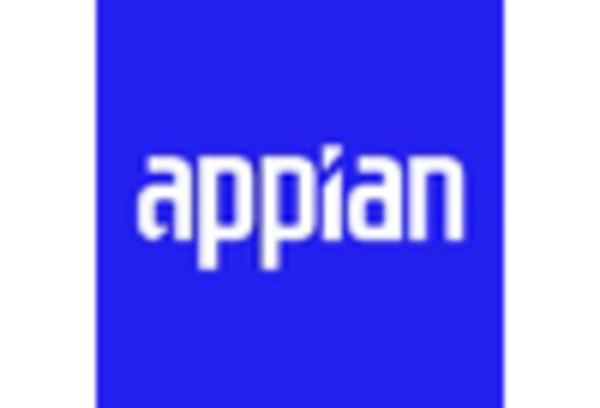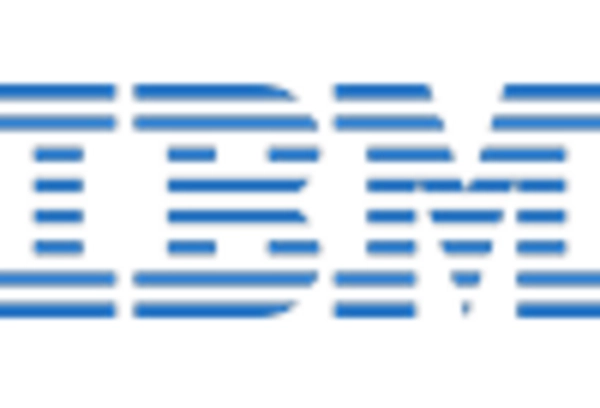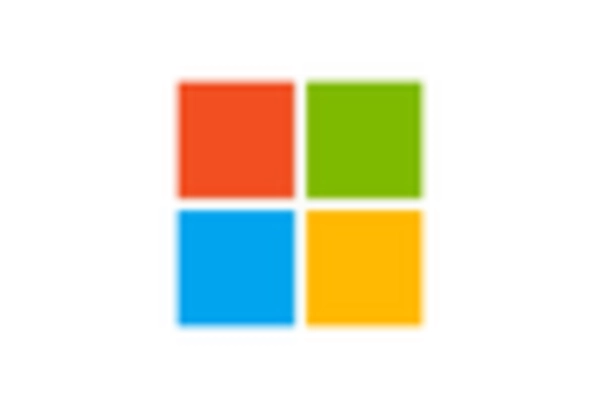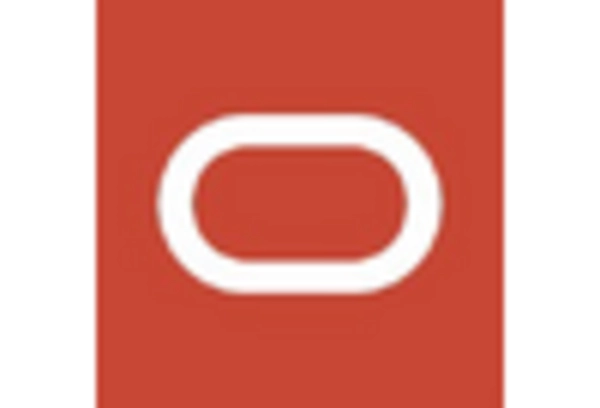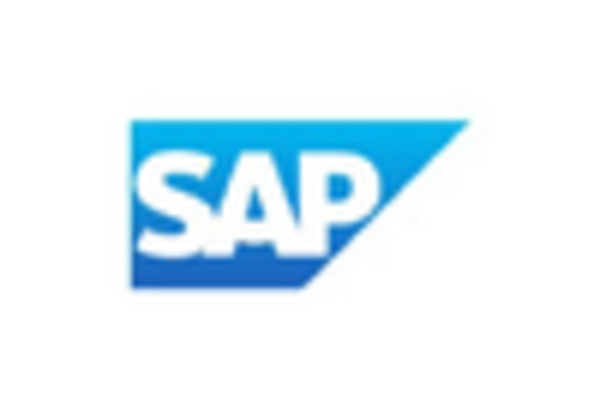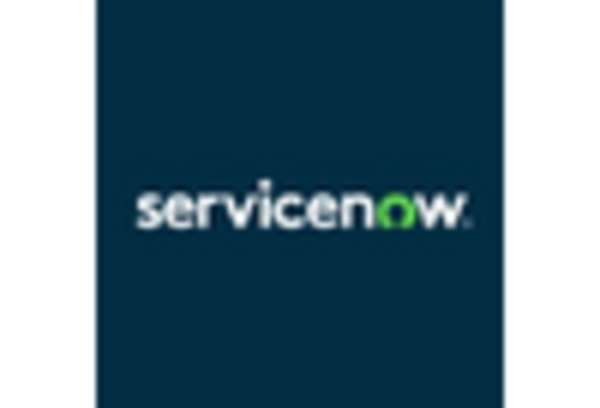Increased Demand for Automation
The US Process Orchestration Market is experiencing a notable surge in demand for automation solutions. Organizations across various sectors are increasingly recognizing the need to streamline operations, reduce manual errors, and enhance efficiency. According to recent data, the automation market in the US is projected to grow at a compound annual growth rate (CAGR) of approximately 25% over the next five years. This growth is driven by the need for businesses to remain competitive in a rapidly evolving landscape. As companies seek to optimize their workflows, the adoption of process orchestration tools becomes essential. These tools facilitate the integration of disparate systems, enabling seamless communication and data flow. Consequently, the increased demand for automation is a significant driver for the US Process Orchestration Market, as organizations strive to achieve operational excellence.
Advancements in Cloud Technology
The US Process Orchestration Market is being propelled by advancements in cloud technology. The shift towards cloud-based solutions is transforming how organizations manage their processes, offering scalability, flexibility, and cost-effectiveness. As businesses increasingly migrate to the cloud, the demand for process orchestration tools that can seamlessly integrate with cloud environments is on the rise. Recent data indicates that the cloud services market in the US is expected to reach 500 billion dollars by 2026, highlighting the growing reliance on cloud infrastructure. This trend is driving the adoption of process orchestration solutions that enable organizations to optimize their cloud operations and enhance collaboration across teams. By leveraging cloud technology, businesses can achieve greater agility and responsiveness, thereby fueling growth in the US Process Orchestration Market.
Regulatory Compliance Requirements
The US Process Orchestration Market is significantly shaped by the increasing regulatory compliance requirements across various sectors. Organizations are under mounting pressure to adhere to stringent regulations, particularly in industries such as finance, healthcare, and manufacturing. Compliance mandates necessitate the implementation of robust processes that ensure data integrity, security, and transparency. As a result, process orchestration tools that facilitate compliance management are becoming indispensable. According to recent statistics, non-compliance can cost organizations up to 2.5 million dollars annually. This financial burden underscores the importance of investing in process orchestration solutions that streamline compliance workflows and reduce risks. By automating compliance-related processes, businesses can not only mitigate potential penalties but also enhance their operational efficiency. Thus, the regulatory landscape serves as a crucial driver for the US Process Orchestration Market, compelling organizations to adopt effective orchestration strategies.
Growing Focus on Customer Experience
The US Process Orchestration Market is increasingly influenced by a growing focus on customer experience. Organizations are recognizing that delivering exceptional customer service is paramount to retaining clients and fostering loyalty. As a result, there is a heightened demand for process orchestration solutions that enable businesses to create seamless and personalized customer interactions. By automating workflows and integrating customer touchpoints, companies can respond more effectively to customer needs and preferences. Recent studies indicate that organizations that prioritize customer experience see a revenue increase of up to 10% annually. This trend is driving the adoption of process orchestration tools, as businesses seek to enhance their customer engagement strategies. Consequently, the focus on customer experience serves as a vital driver for the US Process Orchestration Market, as companies strive to differentiate themselves in a competitive marketplace.
Emphasis on Data-Driven Decision Making
In the current landscape, the US Process Orchestration Market is witnessing a pronounced emphasis on data-driven decision making. Organizations are increasingly leveraging data analytics to inform their operational strategies, leading to improved outcomes and enhanced performance. The ability to collect, analyze, and act upon data in real-time is becoming a critical differentiator for businesses. As a result, process orchestration tools that facilitate data integration and analysis are gaining traction. According to industry reports, companies that adopt data-driven approaches are 5 times more likely to make faster decisions than their competitors. This trend underscores the importance of process orchestration in enabling organizations to harness the power of data effectively. By streamlining data flows and automating processes, businesses can enhance their agility and responsiveness, thereby driving growth in the US Process Orchestration Market.


